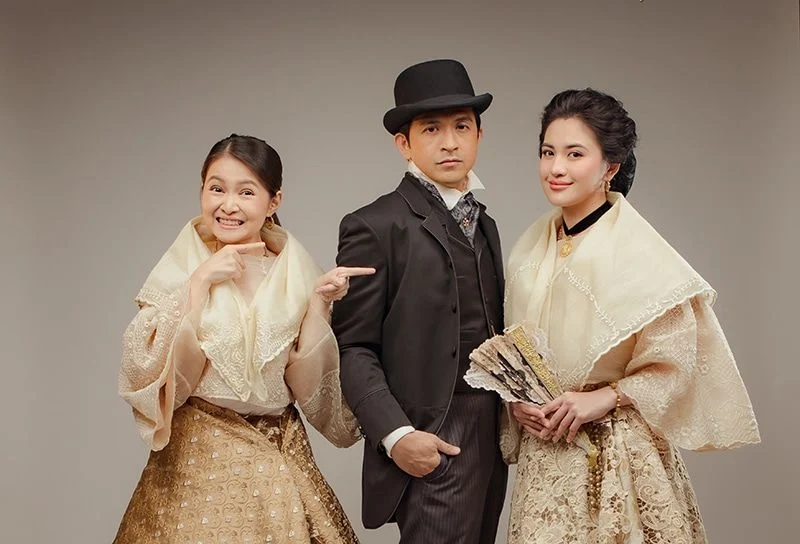
Who is Maria Clara in Jose Rizal’s Novel Noli Me Tangere?
0 Posted By Gift NworieMaría Clara is a central character in José Rizal‘s novel “Noli Me Tangere.” She is one of the most iconic and enduring figures in Philippine literature, embodying the ideals and struggles of the Filipino woman under Spanish colonial rule.
Background and Introduction
María Clara de los Santos is the beautiful, demure, and virtuous daughter of Capitan Tiago (Don Santiago de los Santos) and Doña Pía Alba. However, it is later revealed that her biological father is Padre Dámaso, a corrupt friar, making her a symbol of the complex social and racial dynamics in the Philippines during the Spanish colonial period.
Trending Now!!:
- Henry Thomas Biography: Spouse, Height, Wiki, Parents, Siblings, Movies, Age, Net Worth, Instagram, Awards
- Meet Amanda Manopo’s Parents: Ramon Guna Lugue and Henny Manopo Lugue
- Carlton Pearson’s ex-wife, Gina Marie Gauthier Biography: Age, Husband, Net Worth, Wikipedia, Instagram, Pictures, Children
- Unspeakable Biography: Height, Ethnicity, Age, Net Worth, Siblings, Parents, YouTube, Awards
- Vitaliy Mykolenko Biography: Wife, Age, Children, Net Worth, Height, Career, Clubs, Awards

Role and Characterization
María Clara’s character is often viewed as the epitome of traditional Filipina values, marked by her beauty, modesty, and deep religiosity. She is deeply in love with Crisostomo Ibarra, the novel’s protagonist and their relationship is central to the plot. Her loyalty and love for Ibarra are unwavering, even when he is falsely accused and persecuted.
Symbolism
María Clara symbolizes the purity and innocence of the Filipino woman and the nation’s cultural and religious identity. Her character also reflects the societal expectations placed on women during the colonial era, where they were expected to be subservient, pious, and dutiful.
Despite these expectations, María Clara’s inner strength and resilience shine through, especially in her interactions with Ibarra and her struggle against the oppressive forces around her.
Key Events Involving María Clara
1. Betrothal to Ibarra: María Clara and Ibarra’s engagement is a significant plot point, symbolizing hope and the potential for positive societal change. Their love story is a beacon of light amidst the dark themes of corruption and injustice.
2. Father Dámaso’s Influence: The revelation of Padre Dámaso as María Clara’s biological father adds a layer of complexity to her character. It underscores the clergy’s moral corruption and their actions’ impact on ordinary people’s lives.
3. False Letters: María Clara is manipulated into believing that Ibarra has been unfaithful. Padre Salvi and others’ plot to separate her from Ibarra illustrates the Church’s and colonial authorities’ pervasive influence over personal lives.
4. Convent Life: In the novel’s climax, María Clara chooses to enter a convent after believing Ibarra is dead. This decision, influenced by her father’s manipulations and societal pressures, represents her ultimate sacrifice and the limited choices available to women of her time.

Legacy and Impact
María Clara’s character has had a lasting impact on Philippine culture and literature. She symbolizes the ideal Filipina, embodying grace, virtue, and the struggle for personal and national identity.
Her story highlights the intersection of personal and political themes, making her central in discussions about women’s roles and rights in Filipino society.
Conclusion
In conclusion, María Clara is a richly drawn character whose experiences and choices reflect the broader social and political issues of Rizal’s time.
Through her, Rizal critiques the oppression of women and the moral failings of the colonial and religious authorities, making “Noli Me Tangere” not just a story of personal love and tragedy but a powerful commentary on the broader struggles of the Filipino people.
NOTICE!! NOTICE!! NOTICE!!
At TheCityCeleb, we strive to provide accurate and up-to-date biographies and entertainment news, focusing on celebrities. Our editorial team researches information from reputable sources, including interviews, official statements, and verified media.If you spot an error or have additional details, please contact us at editor@thecityceleb.com. We value your feedback and are committed to maintaining trustworthy content.

